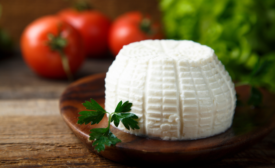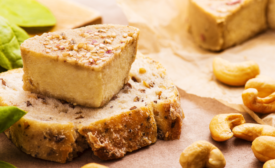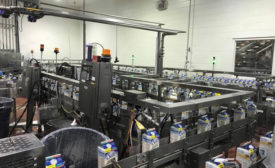Home » Keywords: » plant-based foods and beverages
Items Tagged with 'plant-based foods and beverages'
ARTICLES
Are plant-based milk alternatives healthier?
Plant-based beverages fall short on protein quality and quantity.
September 21, 2020
Giving consumers plant-based alternatives to dairy
More dairy and nondairy companies are launching plant-based dairy alternatives to meet growing consumer demand.
September 10, 2020
Report highlights what’s next for dairy
A new report explores threats and opportunities.
May 19, 2020
Silk's strict allergen-control practices
Because Silk must share its manufacturing operations with Danone North America’s other brands, including dairy brands, the brand put into place strict allergen-control practices
April 8, 2020
Dairy alternatives diversify as the consumer base evolves
The flexitarian movement appears to be having the most impact on growth.
December 17, 2019
Merit Functional Foods seeks to change perception of plant-based proteins
The new company supplies proprietary pea and non-GMO canola protein ingredients.
October 30, 2019
Stay ahead of the curve. Unlock a dose of cutting-edge insights.
Receive our premium content directly to your inbox.
SIGN-UP TODAYCopyright ©2025. All Rights Reserved BNP Media.
Design, CMS, Hosting & Web Development :: ePublishing










